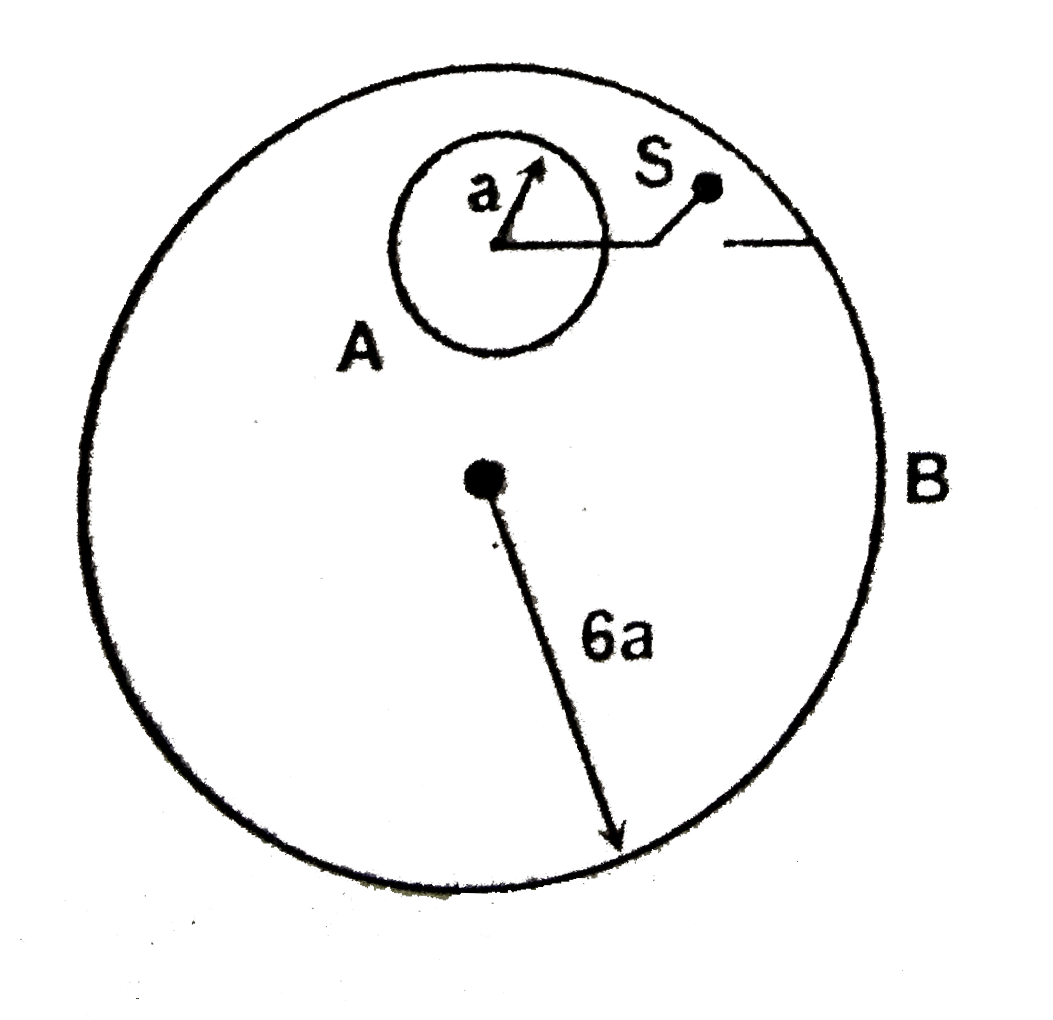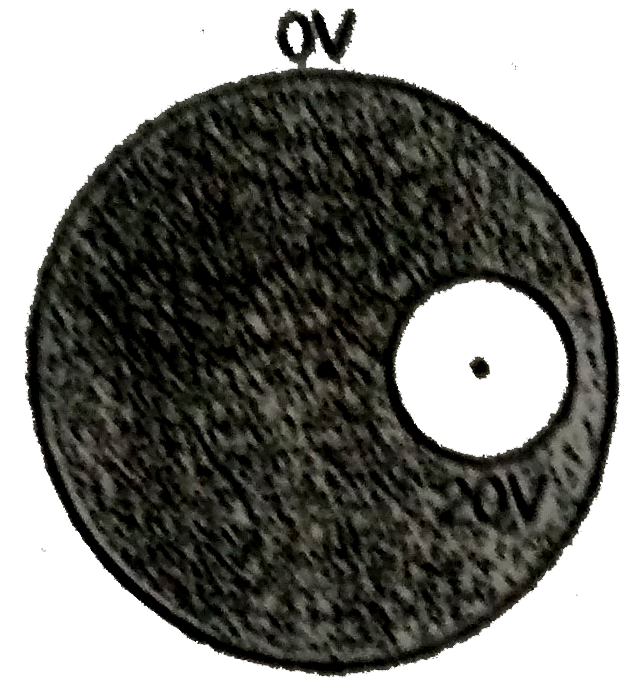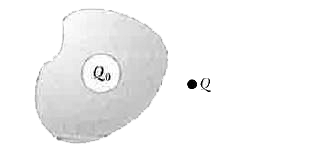If a conductor has a potential V≠0 and there are no charges anywhere else outside, then
there must be charges on the surface or inside itself.
there cannot be any charge in the body of the conductor.
there must be charges only on the surface.
there must be charges inside the surface.
The correct Answer is:C, D
It is given that there is no charge anywhere else outside the conductor, hence its non-zero potential must be due to its own charge, wich must reside on its surface or its non-zero potential is due to some other charge placed inside by making some kind of cavity in its volume. Hence option (a) is correct.
As far as the volume of conductor is concerned there can be no net charge. Hence option (b) is also correct.
Topper's Solved these Questions
- ELECTROSTATIC POTENTIAL AND CAPACITANCE BOOK - MODERN PUBLICATIONCHAPTER - ELECTROSTATIC POTENTIAL AND CAPACITANCE EXERCISE - Chapter Practice Test
9 Videos
- ELECTROSTATIC POTENTIAL AND CAPACITANCE BOOK - MODERN PUBLICATIONCHAPTER - ELECTROSTATIC POTENTIAL AND CAPACITANCE EXERCISE - Competition file (NCERT Exemplar Problems: Multiple Choice Questions Type-I)
6 Videos
- ELECTROMAGNETIC WAVESBOOK - MODERN PUBLICATIONCHAPTER - ELECTROMAGNETIC WAVESEXERCISE - CHAPTER PRACTICE TEST
14 Videos
- MAGNETISM AND MATTERBOOK - MODERN PUBLICATIONCHAPTER - MAGNETISM AND MATTEREXERCISE - CHAPTER PRACTICE TEST FOR BOARD EXAMINATION
16 Videos
Similar Questions
If 20J of work has to be done to move an electric charge of 4C from a point, where potential is 10V to another point, where potential is V volt, find the value of v.
View SolutionA spherical metallic conductor has a spherical cavity. A positive charge is placed inside the cavity at its centre. Another positive charge is placed outside it. The conductor is initially electrically neutral.
Column I (Cause)Column II (Effect)(A)If outside is shifted to other position(p)Distribution of charge on innner surfaceof cavity charges(B)If inside charge is shifted to other position(q)Distribution of charge on outer surface ofconductor charges(C)If magnitude of charge inside cavity is(r)Electric potential at the centre of conductorincreasedchanges due to charges presenton outer surface of conductor(D)If conductor is earthed(s)Force on the charge placed insidecavity changes
View Solution
Knowledge Check
If the conductor has V≠0 with zero charge then:
Athere cannot be any charge in the body of conductorBthere must be charge on the surface or inside itselfCthere must be charge only on the surfaceDboth (a) and (b)
A small spherical conductor 'A' of radias 'a' is initially charged to a potential 'V' and then placed inside an uncharged spherical conducting shell 'B' of radius 6a as shown. The potential of the spherical conductor 'A' after closing the switch S isAVBV3CV2DV6The electric potential at the centre of a charged conductor is
AzeroBtwice that of the surfaceCsame as on the surfaceDnone of these
If a charged spherical conductor of radius 10cm has potential V at a point distant 5cm from its centre, then the potential at a point distant 15cm from the centre will be
View SolutionTwo equipotential spherical surface having potential 20V and 0V are as shown in figure. There is no charge anywhere in space except on the surface of both the spheres. Then which of the following figure represents the nature of electric field in region between the spherical surfaces by electric lines of forces.

View SolutionA charge Q0 is placed at the center of spherical cavity of a conductor and another charge Q is placed outside the conductor as shown in the figure. The correct statement is :

View SolutionIf a charged spherical conductor of radius 5 cm has potential V at a point distant 5 cm its centre, then the potential at a point distant 30 cm from the centre will be
View SolutionAn insulated charged conducting sphere of radius 5cm has a potential of 10V at the surface. What is the potential at centre?
View Solution
